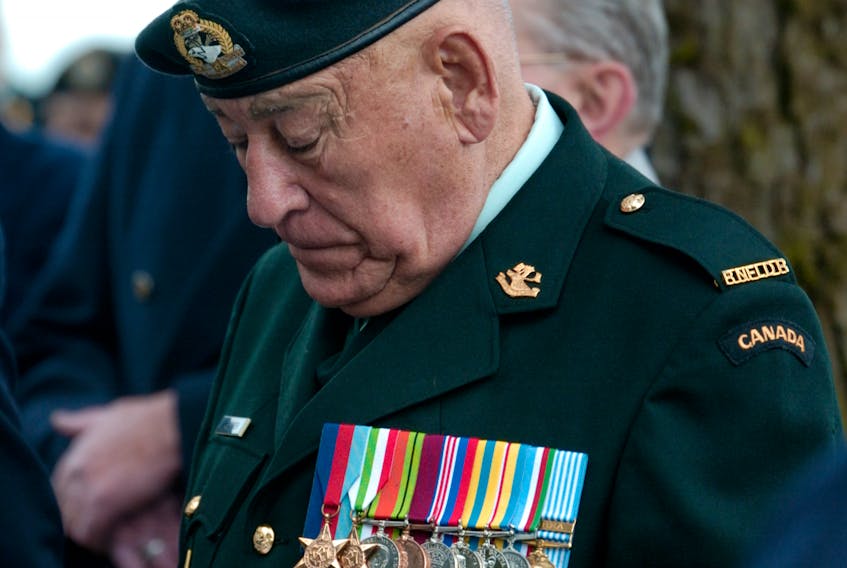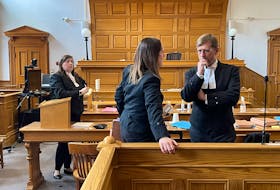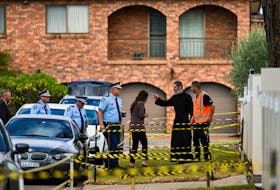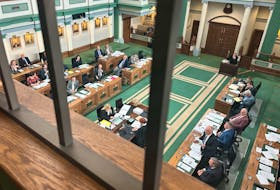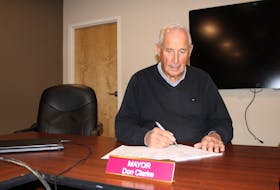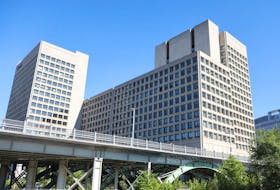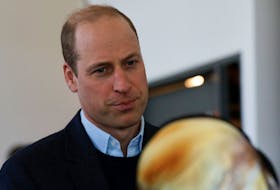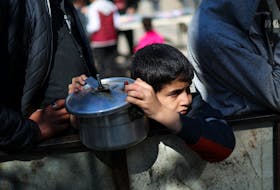Richard Alexander, a hero of both the Second World and Korean wars, is being described as a loyal member of the Royal Newfoundland Regiment family on his passing.
Alexander, served as honorary lieutenant-colonel of the Second Battalion Royal Newfoundland Regiment, for seven years beginning in 2003, but was an ardent supporter of the regiment throughout the province, said retired Second Battalion commanding officer and Lt.-Col John MacDonald, who is also a former commanding officer of the First Battalion.
“He was a great guy. He had a great personality. He was always upbeat. What more can I say other than he as one of the greatest guys I met as a soldier,” MacDonald said.
“He will be sorely missed from the regiment point of view.”
Current Second Battalion Commanding Officer Lt.-Col. Mark Felix said Alexander was his mentor while a young teenager joining the cadet corps in Port-au-Port.
Felix said Alexander was dedicated to the military all his life, and founded the Charlie company in Stephenville in 1972, recruiting 99 people in two days.
He was instrumental in the establishment of the army cadet movement in western Newfoundland, as well as the Second Battalion of the Regiment, Felix said.
As for his time at war, Felix said Alexander would say he had seen a lot of things most people shouldn’t see.
He was injured during his service, Felix noted, and during the Korean War went out on night patrols when men were often lost to Korean fire at the rear of the line.
But, said Felix, Alexander didn’t see himself as a warrior he was.
Felix also noted that Alexander attended every graduation as Second Battalion honorary lieutenant-colonel, as well as supported the various exercises and events
As soon as the fog lifted on day exercises that began at 5:30 a.m., Alexander would be there to tell the regiments members they did a great job and to offer advice, Felix said.
When Felix would visit him in long-term care home, he said Alexander always had the same first questions: “How are you doing? How are the troops doing? and How are the numbers?”
Charlie Company recently celebrated its 40th anniversary and Alexander was a big factor in that longevity, Felix said.
But besides supporting the military and advocating it as a good opportunity for young people, Alexander worked hard with his construction company and was a community volunteer — for instance he moved the cenotaph in Stephenville, and always supported the Royal Canadian Legion, Felix noted.
According to the Royal Newfoundland Regiment museum, Alexander enlisted in the Newfoundland Militia in fall 1941 at the age of 16. On Dec.12, 1942, while posted to St John’s he was involved in rescuing several people from a major fire at the Knights of Columbus Hostel which killed 99 people. This fire was widely believed to be an act of sabotage.
In January 1943, he shipped overseas to England as a replacement for the 166 Artillery Regiment (Newfoundland). While there, he volunteered for service with the British Commandos. Due to his French language skills, he was later recruited by the Royal Navy Commandos and subsequently conducted 13 covert missions into occupied France. On his last mission he was seriously wounded, successfully evaded capture with the help of the French Resistance, and was the sole survivor of that operation.
In spring 1944 after a long convalescence, the museum biography notes, he joined the 166 Artillery Regiment in Italy where he served as the commanding officer’s driver and dispatch rider until the end of the war.
He was married in England in 1945 and returned home to Newfoundland in 1946.
When the Korean War broke out, he re-enrolled in the Canadian Forces and did a tour of duty as a sergeant in 1952. In 1953, he transferred to the Black Watch and served a second tour in Korea as part of a UN Peacekeeping operation.
Upon return home, he served as a recruiter in Newfoundland for three years and took his release from the regular force in 1956. But in 1960, he re-enrolled in the Royal Newfoundland Regiment in Corner Brook.
Alexander and his late wife Dolly raised 11 children.
His funeral is being held in Port au Port West Thursday.

